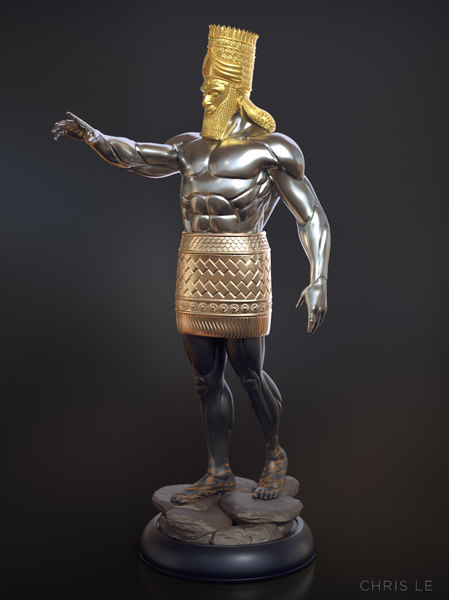
Nebuchadnezzar made a 90 foot statue and covered it in gold. The decree was given that at the sound of the musical instruments, everyone must bow and worship the statue. This was likely to protect and promote loyalty to the king. All were to participate in showing their allegiance to, support of, even devotion to the king. At the sound of music – “”everyone do the thing!”
Idolatry was a party and a matter of pride. If you didn’t do as everyone else, clearly you were contrary. The allegiance had specific behavior to it – you had to bow. Not bowing was met with incineration. It wasn’t just cool and trendy, it was the law. If you didn’t participate, you didn’t just have to endure the “shame-squad,” you would be executed by being burned alive.
Shadrach, Meshack, and Abednego did not bow. They didn’t curse the king, tear down the statue, nor did they criticize anyone for bowing. They just would not bow. And they faced the fiery wrath of a pagan nation. The Lord spared them from death, but their devotion to the Lord was not predicated on His deliverance. They would not bow regardless of consequence.
Years later, a law was put in place – for 30 days – that no one may pray to anyone but the king, under penalty of death. It was legal. It was temporary. It was applied – fairly – to everyone. No one was singled out or targeted (not legally, although those behind the law were aiming at Daniel). Daniel was an employee of the king. He was under the king’s rule as a citizen and under the king’s authority as an employee. And Daniel was prohibited, for a mere 30 days, from praying (or at least from doing so in a way where anyone would see, hear or know about it). It was probably ok to go buy furniture, bbqs, and medicinal marajuana, but not to pray (at least not in public).
Daniel could have complied, or at least found a way to comply. He was pretty smart. He could have prayed in a closet, under a bed, or rode out into the countryside alone and prayed. There were no Yahweh-centric sites in Babylon, so no particular place would have mattered anyway – prayer isn’t a “place” anyway, right? The law wasn’t permanent. It would pass. They were all in this together.
But Daniel went up to his room, the same place he always went to pray (which would have been a considerable place, visible and known). He opened the windows toward Jerusalem. And prayed. He prayed aloud (as all Jewish men did). And he did so three times a day. He got down on his knees and prayed. He did not stand on the balcony and proudly thump his chest. He knelt in humility and devotion to God, giving thanks and asking for help (6:10-11). Daniel disobeyed a royal law and a direct order. There was no actual OT law that required him to pray from his room, aloud, three times a day. But he did so in devotion to God, in desperation for God’s help, and in direct disobedience to the ruler of his day.
Both of these examples were rife with risk. The first was a refusal to comply with the crowd’s idolatry. The second was to worship openly under prohibition.
Civil disobedience in Babylon is nothing new. The need for conviction, courage and humility continues.